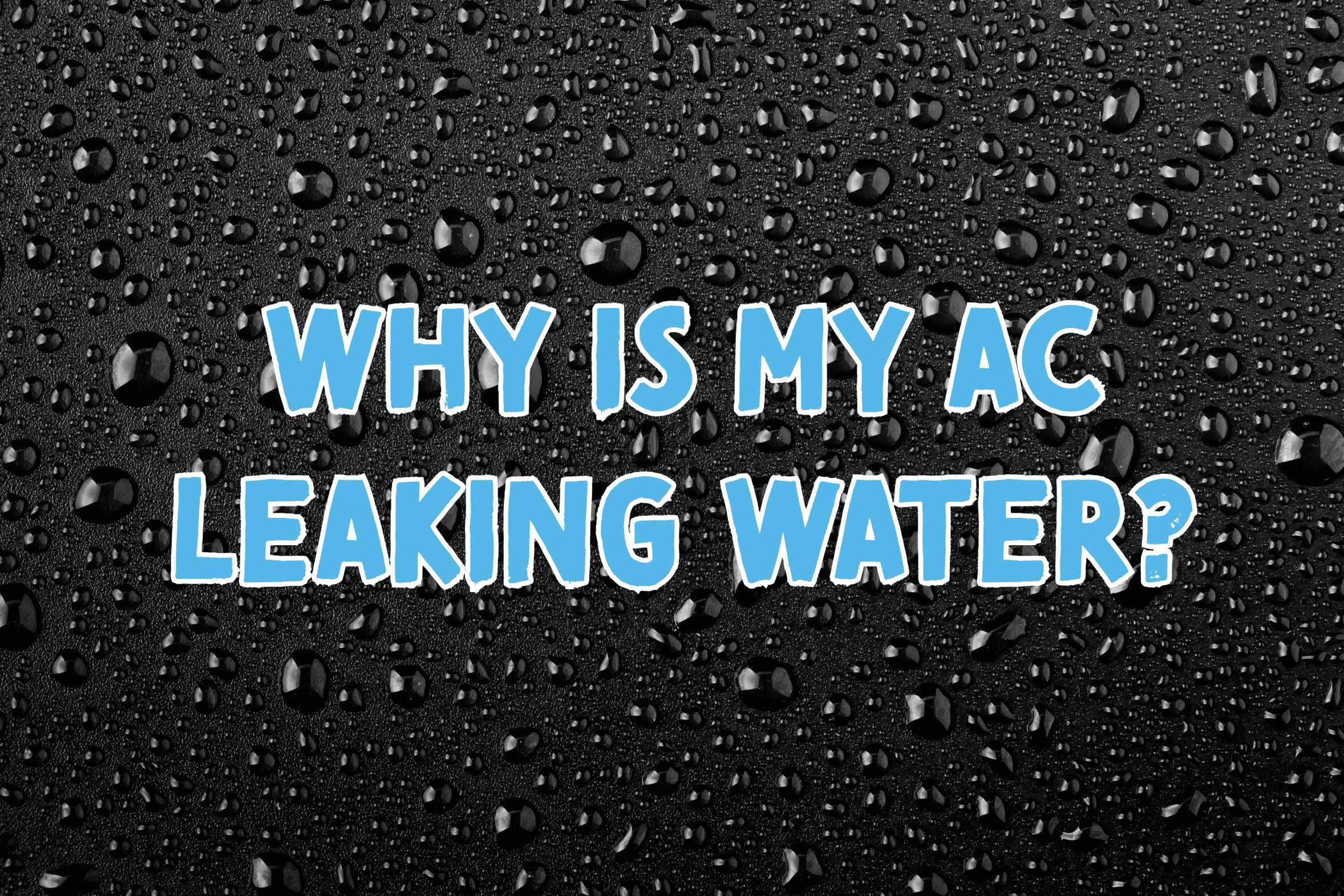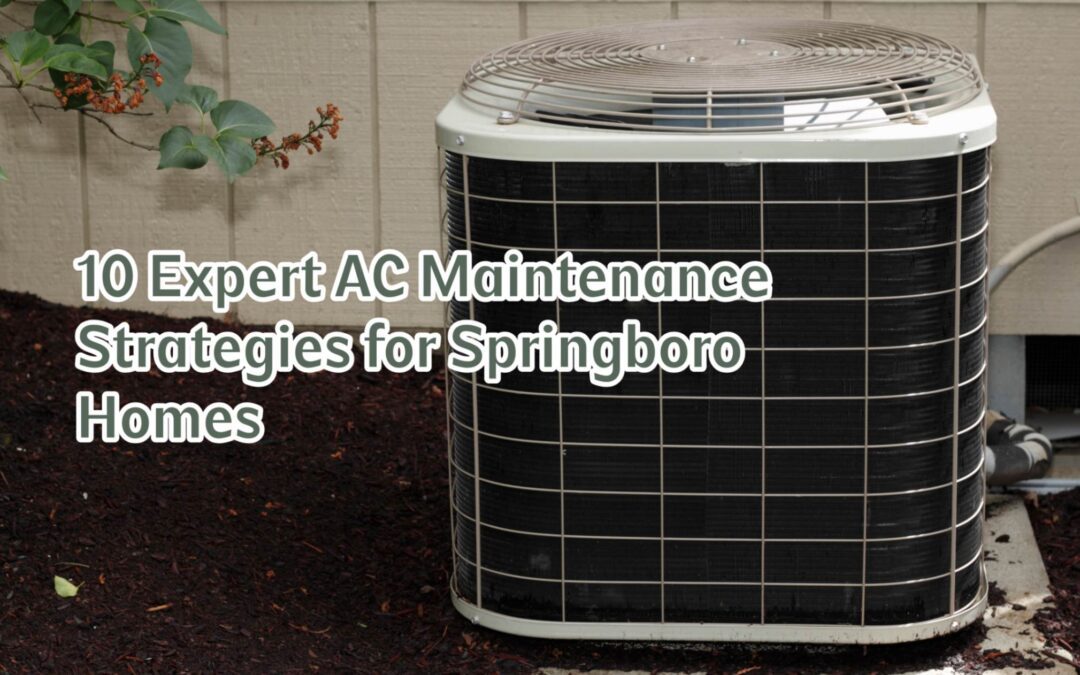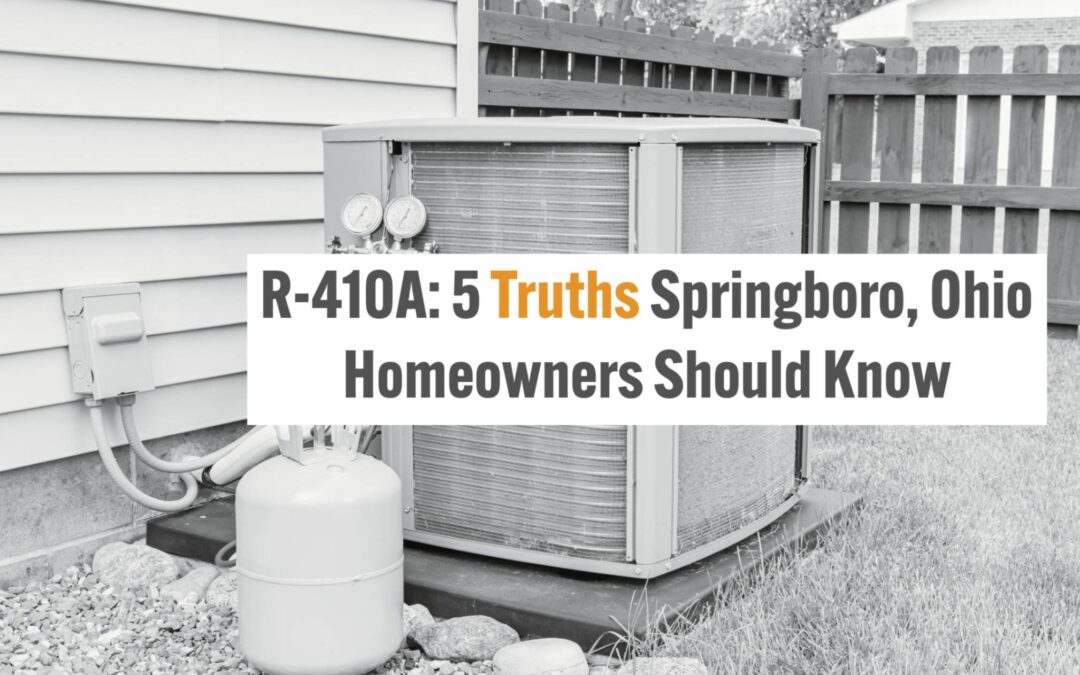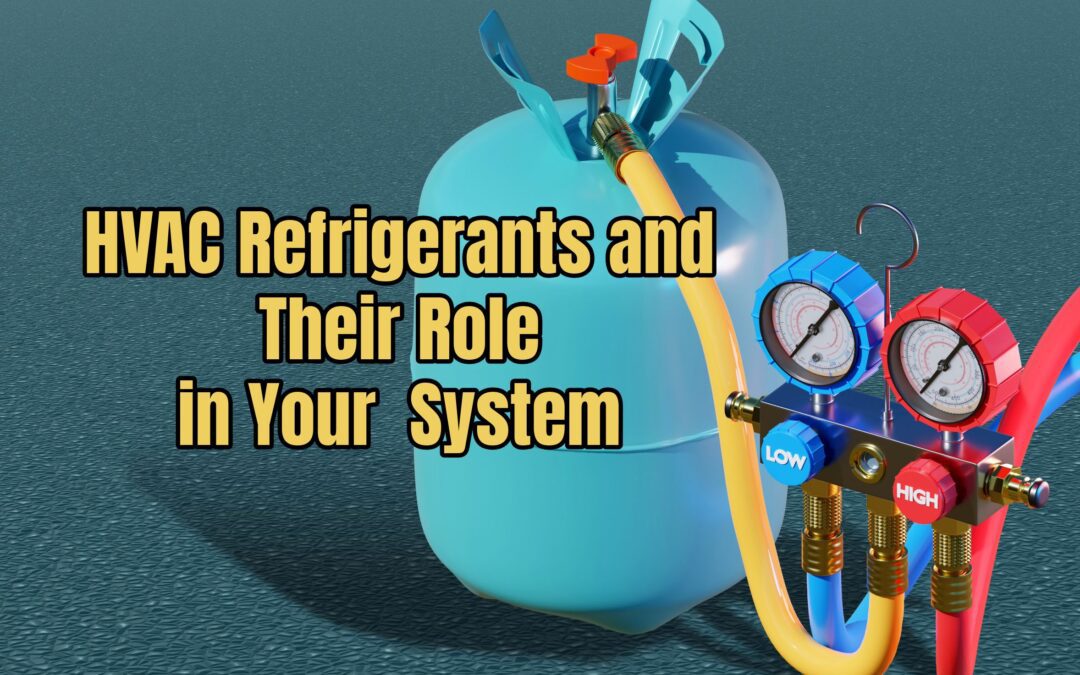Let’s face it: Ohio summers can be scorching! So, it’s likely that your AC has likely been working hard to combat the summer heat. Unfortunately, when your AC operates at full capacity, it can result in water leakage. While this can be concerning, rest assured that your Springboro Heating & Cooling professionals are here to guide you through diagnosing the issue.
Reasons Why Your AC May Be Leaking:
- A Malfunctioning Thermostat
- A Frozen Evaporator Coil
- A Clogged Condensate Drain
- An Old or Damaged Condensate Drain Pan
- Low Refrigerant Levels
- A “Sweating” Condenser
1. A Malfunctioning Thermostat
Your thermostat regulates the temperature of the evaporator coils to achieve the desired temperature for your home. When excess water condenses on the evaporator coil, it may start to leak. Consequently, if the thermostat malfunctions, your AC system is likely to experience issues as well.
Consider your thermostat as the central hub of your HVAC system. If the hub fails, the entire system is affected. When a thermostat malfunctions, it cannot effectively communicate with your HVAC system, signaling your AC when to turn on and off, circulate air, etc. Many system issues can be traced back to a faulty thermostat. Addressing your air conditioner problems may begin with examining the thermostat to see if the batteries need replacing (if applicable), or there could be a wiring issue, in which case contacting a licensed technician is recommended.
2. A Frozen Evaporator Coil
It is important to note that one of the primary reasons for an AC leaking water is the freezing of the evaporator coil. This typically happens when the air filters become excessively clogged, preventing adequate airflow over the coils. As a result, the evaporator coils can become so cold that they freeze, causing water to drip.
You can fix this issue by:
- Inspecting the Air Filters: It is important to regularly inspect your HVAC air filters. While it is recommended to replace them every 1 to 3 months, double-checking to ensure a clogged air filter is not causing issues is prudent. A fresh air filter may resolve your air conditioning problems effectively.
- Adjusting Your Thermostat Settings: To stop the drippage or leaking, it’s essential to thaw the frozen evaporator coil first. This can be achieved by raising the thermostat temperature by a few degrees to aid the thawing process. (Please note, if your entire unit is frozen, it is advisable to turn off the cooling settings and activate the fan instead.)
3. A Clogged Condensate Drain
Your condensate drain may be clogged. The condensate drain is the pipe that conveys water from the drain pan to the outside. If it becomes clogged, the water intended to drain can back up and leak outside of the drain pan.
We advise against attempting to troubleshoot this issue yourself, as it could potentially cause damage to your pipes or system. A clogged condensate drain can result in various AC malfunctions, but it is a straightforward fix for a qualified and licensed technician.
4. An Old or Damaged Condensate Drain Pan
Now, regarding the condensate drain pan: Since this pan collects the water runoff from the evaporator coil during the cooling process, any wear or damage to the drain pan can lead to water leakage on the floor.
Resolving this issue is straightforward. If this applies to you, you will need to replace the old or damaged drain pan with a new one. Ensure you follow the manufacturer’s instructions meticulously. If you are uncertain about carrying out this specific troubleshooting task, we would be more than happy to assist you.
5. Low Refrigerant Levels
When the refrigerant levels in your air conditioner drop, the internal pressure decreases as well. This can cause the evaporator coils to freeze, resulting in an unwelcome and potentially wet issue. Be on the lookout for signs of low refrigerant, such as:
- Hissing or bubbling sounds coming from the AC unit
- Ice on the evaporator coils
- The AC is not blowing out “cold” air
- Water leakage
To resolve this issue promptly, it is advisable to contact a licensed technician. They possess the appropriate refrigerant for your air conditioner and the necessary equipment to safely refill it.
6. A “Sweating” Condenser
Did you know that your air conditioner can experience condensation? This occurs when warm or humid air contacts the cool exterior of the unit, forming moisture or water droplets. Consequently, this excess moisture can lead to water runoff, making it appear as though the unit is leaking.
While mild condensation is generally not a cause for concern, an excessively “sweating” unit should be inspected by a professional promptly. The last thing you want is to deal with water damage or a compromised AC unit due to an unresolved issue.
We prioritize your safety and comfort. If you are experiencing issues with a leaking air conditioner and are unsure of the cause, please do not hesitate to contact us. We would be honored to provide you with our five-star customer service.
You can beat the heat with the help of your Call Springboro Heating & Cooling today at (937) 600-6834, or schedule an appointment online now by clicking here!







